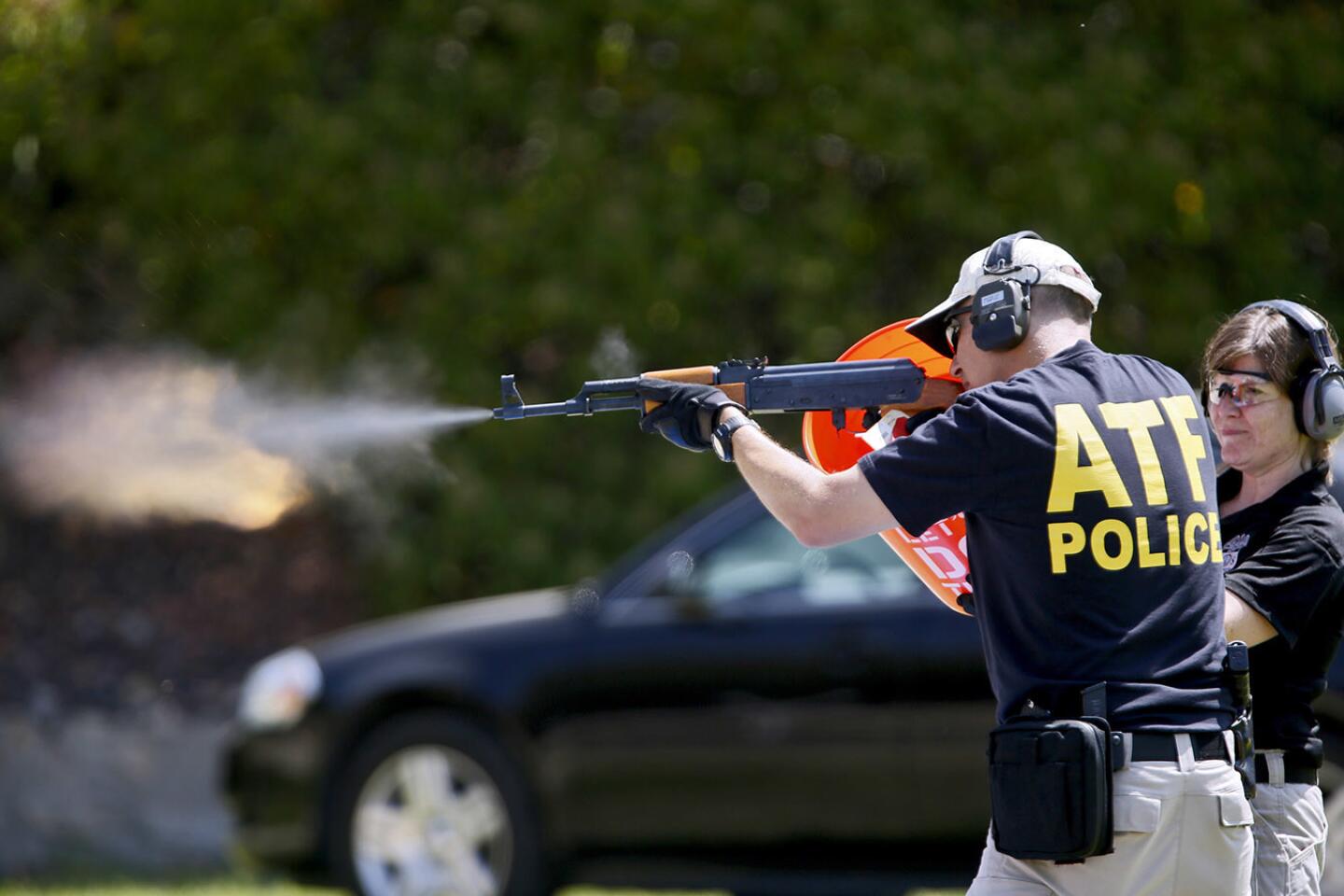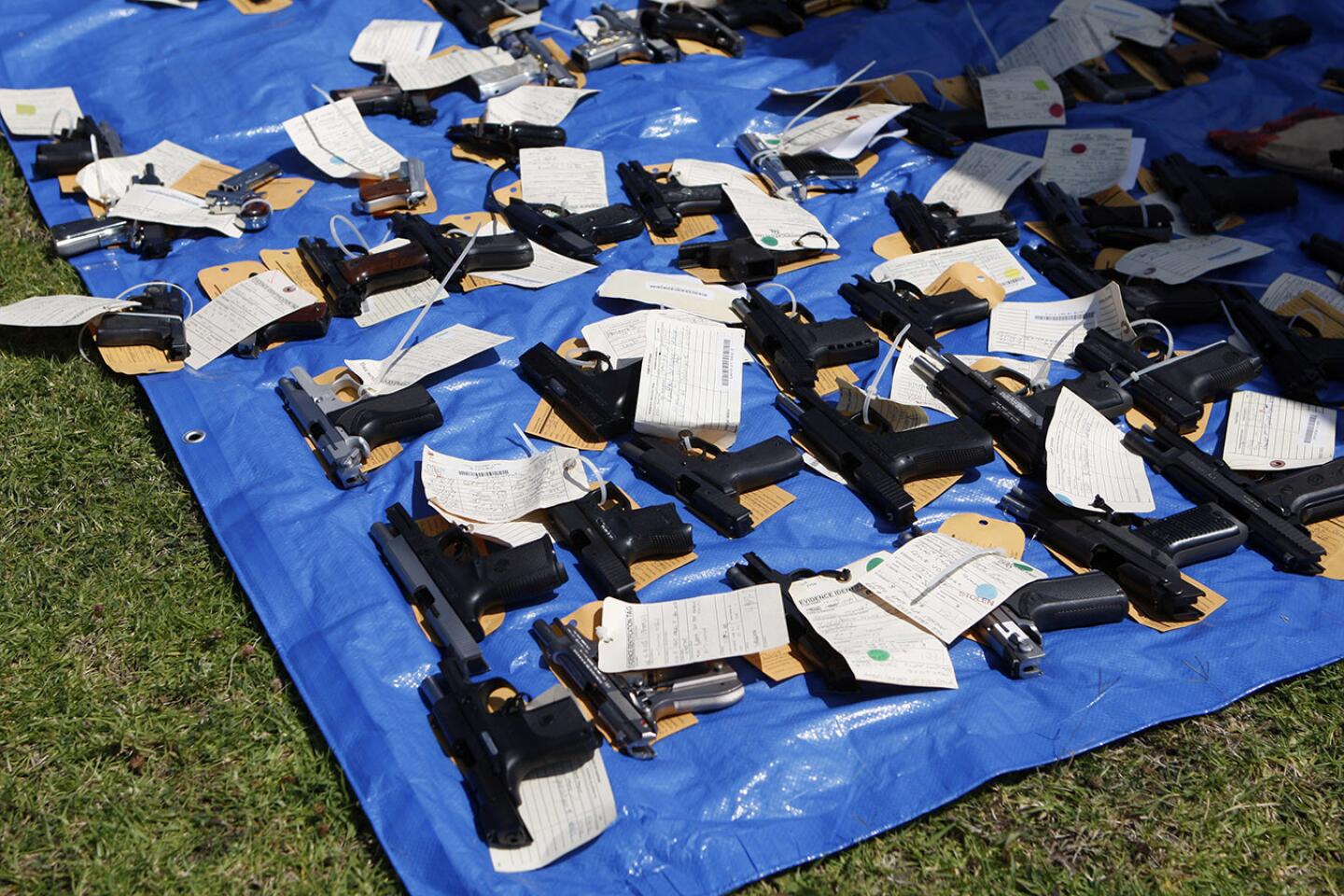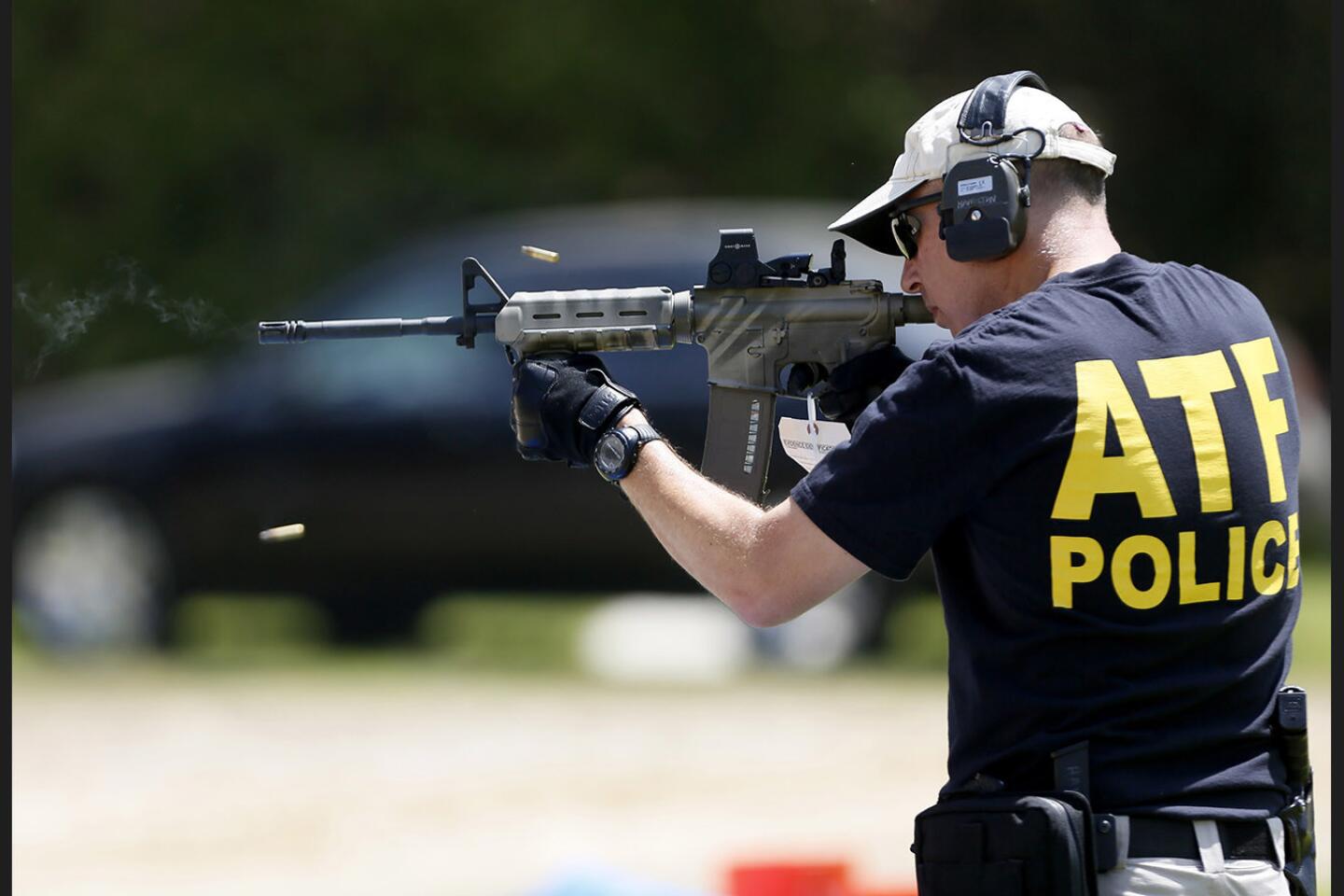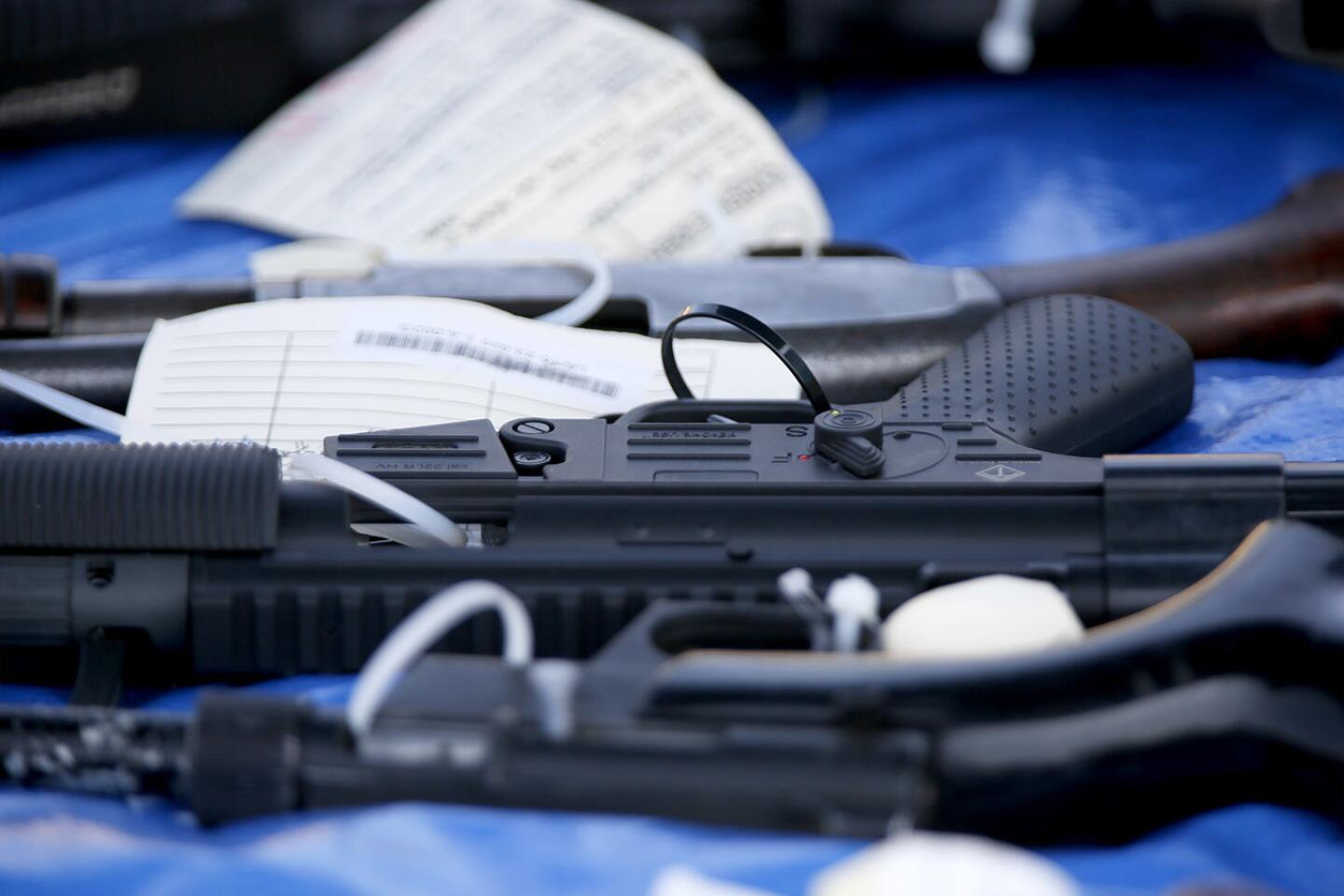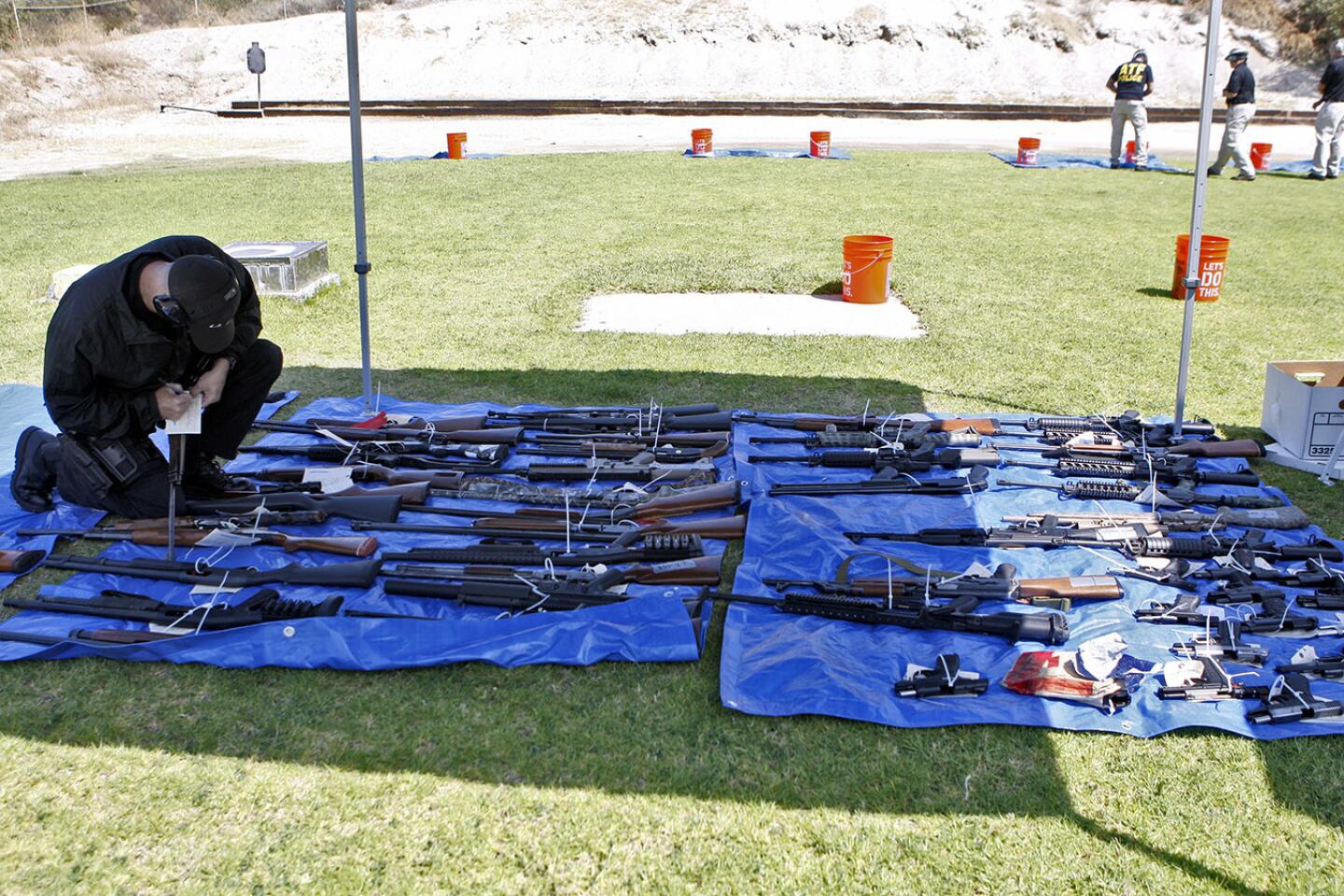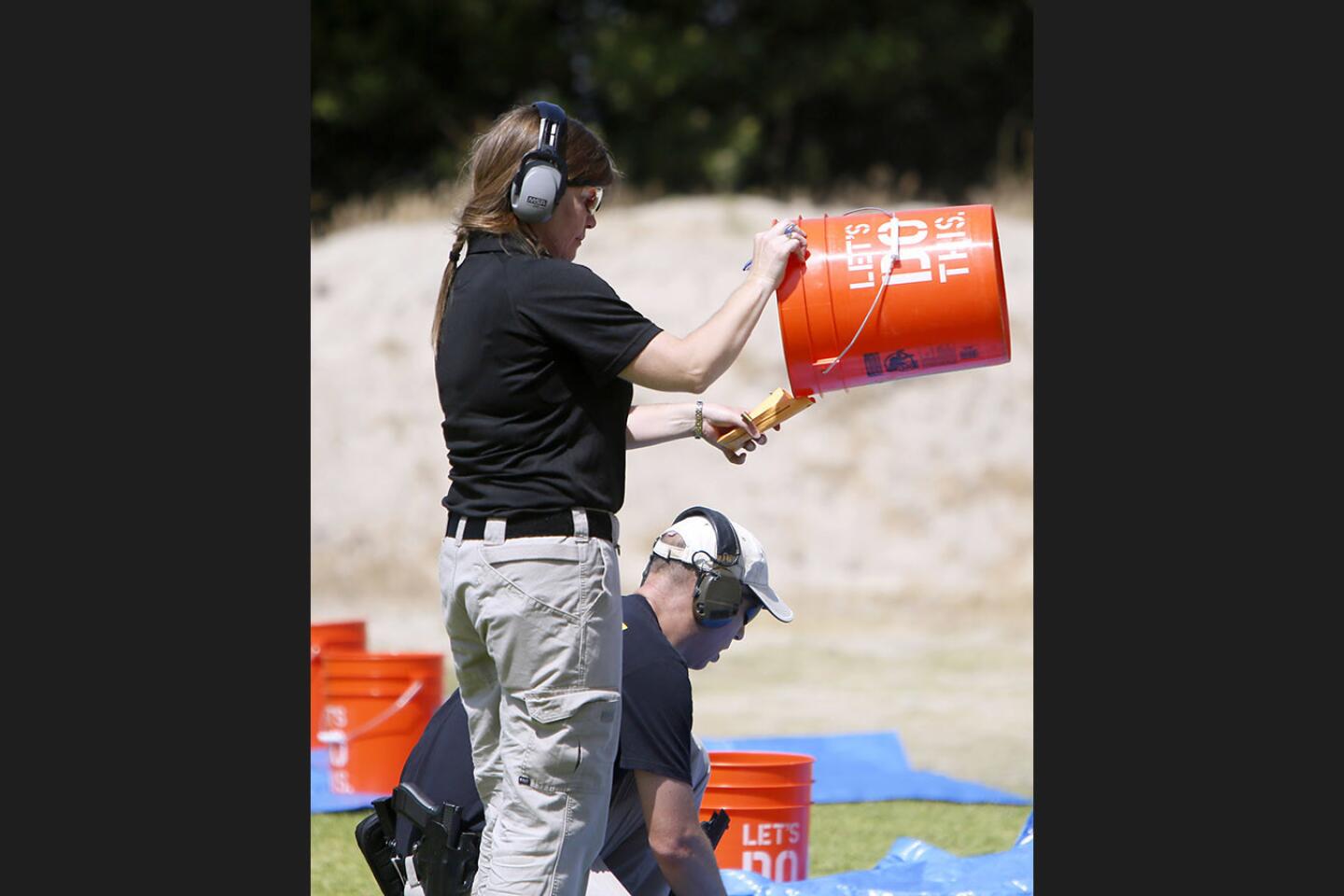Shell casings could prove key to solving crimes across Los Angeles County
- Share via
Federal agents and local law-enforcement officers spent the better part of Friday morning shooting roughly 200 guns, collecting and cataloging every spent shell casing in the hopes that one of them will lead to a break in an unsolved criminal case.
Held at the Glendale Police Department’s shooting range, the day was a joint effort between the Bureau of Alcohol, Tobacco, Firearms and Explosives, known as ATF, Glendale Police and the Los Angeles Interagency Metropolitan Police Apprehension Crime Task Force. Each gun was confiscated in Los Angeles County by the crime task force, which goes by the acronym L.A. IMPACT, either at crime scenes or from arrestees.
The seized weapons ranged from simple handguns to rifles and shotguns.
“During the course of many of our investigations, we come across illegal weapons or weapons that shouldn’t be in the possession of the people we detain,” L.A. IMPACT group supervisor Brian Rose said. “When we compile a certain amount of guns, we like to bring them out and test them.”
Rose said not all guns are stockpiled. If a weapon is already suspected of being used in a specific crime, it’s tested immediately, he said.
Testing involves firing off a gun several times and collecting the shell casings. Rose said each shell has a distinctive marking from the gun it was fired from, much like a fingerprint.
If a gun is fired in one place during a crime and then used again elsewhere, police are able to link that specific weapon to the two crimes based on the markings found on the shell casings left behind.
The shells collected on Friday will be sent to the Verdugo Regional Crime Laboratory at the Glendale Police Department’s headquarters, where a 3-D image of each one will be scanned, markings and all. The images will then be uploaded to the National Integrated Ballistic Information Network, known as NIBIN, which is a database maintained by the ATF that collects similar images of casings recovered from crime scenes across the United States.
When a shell is entered into the system, it’s crosschecked with other casings that have similar markings.
Chris Bombardiere, a group supervisor with the ATF’s Los Angeles field division, said the database is a way for police departments to better share information with one another and help establish links to unrelated crimes.
“You might have a suspect in your homicide case or shooting, while I don’t have anything in mine,” he said. “[With NIBIN], I now have a lead I didn’t before.”
With guns recovered across the county, one weapon could theoretically have links connected with crimes committed in several cities from Torrance to Burbank. Finding these links is important for the good of the whole county, not just any one city, according to Glendale Police Sgt. Robert William.
“[This testing] definitely has an impact on unsolved cases in our community,” William said. “That’s what we’re doing here, trying to find leads to unsolved cases.”
Twitter: @Andy_Truc
